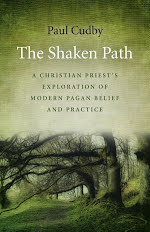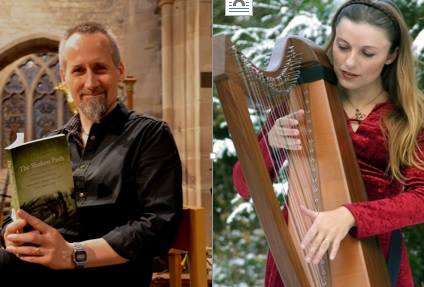SHEFFIELD, England — The process of interfaith engagement between the Pagan and the Christian communities in Britain is relatively recent, but is already quite firmly established.

[Pixabay.]
This is a result of outreach on both sides, and several Christian priests have been at the forefront of contacting Pagans with a view to understanding rather than conversion.
One of the central features of this work has been a mutual interest in Forest Church: a means by which Christians engage with the presence of their god within creation by conducting their worship outside through meditation, silences, prayer walks and rituals. Forest Churches are a loosely connected network with the common theme being panentheism, a belief that God is present in all things.
Forest Church members have been joined by Pagans throughout the country, as fellow travellers rather than Christian converts, and Christians have joined Pagan worship in turn. One of the priests who has been instrumental in this is Paul Cudby, the author of The Shaken Path: a Christian Priest’s Exploration of Pagan Belief and Practice, and adviser to the Bishop of Birmingham on new religious movements. We spoke with Cudby about his work.
Cudby began this part of his spiritual journey in 2012 with a three month period of study leave. He and his wife, harpist and singer Alison Eve, wanted to explore the Pagan background found in so much of the Celtic-influenced music that they played and enjoyed.

With his bishop’s permission they spent the late spring and summer living in their caravan and touring the country, from Orkney to Cornwall, visiting moots, after having first asked permission, and simply listening to Pagans who were willing to share their stories. Added to this journey was a series of lunchtime meetings with a number of prominent Pagan authors or practitioners who gave their consent to a sharing of stories.
Primary to Cudby’s motivation was to try and engage with what the Pagans, who he met, believed and what had led them to their spiritual place, and then to compare that with his own journey and spiritual experiences within the Christian tradition. The title of his resulting book, The Shaken Path, refers to the effects their beliefs had on his own journey and the little and sometimes substantial earthquakes he experienced.
Cudby believes, however, that this should be the effect of interfaith work, suggesting that if it doesn’t lead to deep questions of our own beliefs then we are not doing it in sufficient depth. He recognises the fear that exists in the general population toward Paganism and, as a former scientist, is convinced that a better knowledge and informed understanding of the different paths will undermine that fear and lead to better dialogue. That is why he wrote the book.
He knows his own journey has been deepened through this process, and many of the Pagans he has spoken to have said the same thing.
The greatest difficulty in this work, however, still remains the fear of the unknown and people’s assumptions of what Pagans believe. Cudby has experienced a limited number of people who expressed misgivings although most were supportive once it was explained to them that he wasn’t ‘converting’, but simply seeking to understand.
Likewise with the various Pagan communities and individuals with whom he has engaged, the response has been almost overwhelmingly positive once he has given his assurance of friendship and learning rather than trying to convert them.
On Jan. 28, Cudby will be holding a seminar on understanding contemporary Paganism at St Mark’s, Broomhill and Broomhall in Sheffield. The post on the church’s Facebook page reads:
The seminar will include discussions around the differences in orthodoxy vs. orthopraxy, the different lenses we use to view our spiritual experiences and how this affects our interpretations of them, Wicca vs. Witchcraft and Christian magic, Druidry and how Awen (the breath of inspiration) may relate to Ruach (the Breath/Wind/Spirit of God) and why so many Druids are linked to Christianity, Animism and how this can relate to a Trinitarian world view and Shamanism and healing.
The aim of the seminar is to engage fully and non-judgementally with what Pagans believe in order to help Christians understand them in a more open and meaningful way, whilst also encouraging Christians to look closely at some of the assumptions underlying their own belief and practice.
Interspersed throughout will be music from Alison Eve whose songwriting has been deeply influenced by the journey she and Cudby are sharing.

Paul Cudby and Alison Eve [courtesy].
He said that he works hard to ensure that it can be a safe place for discussion to take place.
Cudby added that he will continue his work and welcomes speaking at more events, either Christian and Pagan.
The Pagan/Christian interfaith dynamic continues to progress throughout the UK. This reporter was invited by Wells Cathedral to take part in a panel on Paganism for a group of Christians some while ago, and the Bishop of Bath and Wells and the clergy of Glastonbury continue to liaise productively with the Pagan community.
The Wild Hunt is not responsible for links to external content.
To join a conversation on this post:
Visit our The Wild Hunt subreddit! Point your favorite browser to https://www.reddit.com/r/The_Wild_Hunt_News/, then click “JOIN”. Make sure to click the bell, too, to be notified of new articles posted to our subreddit.
